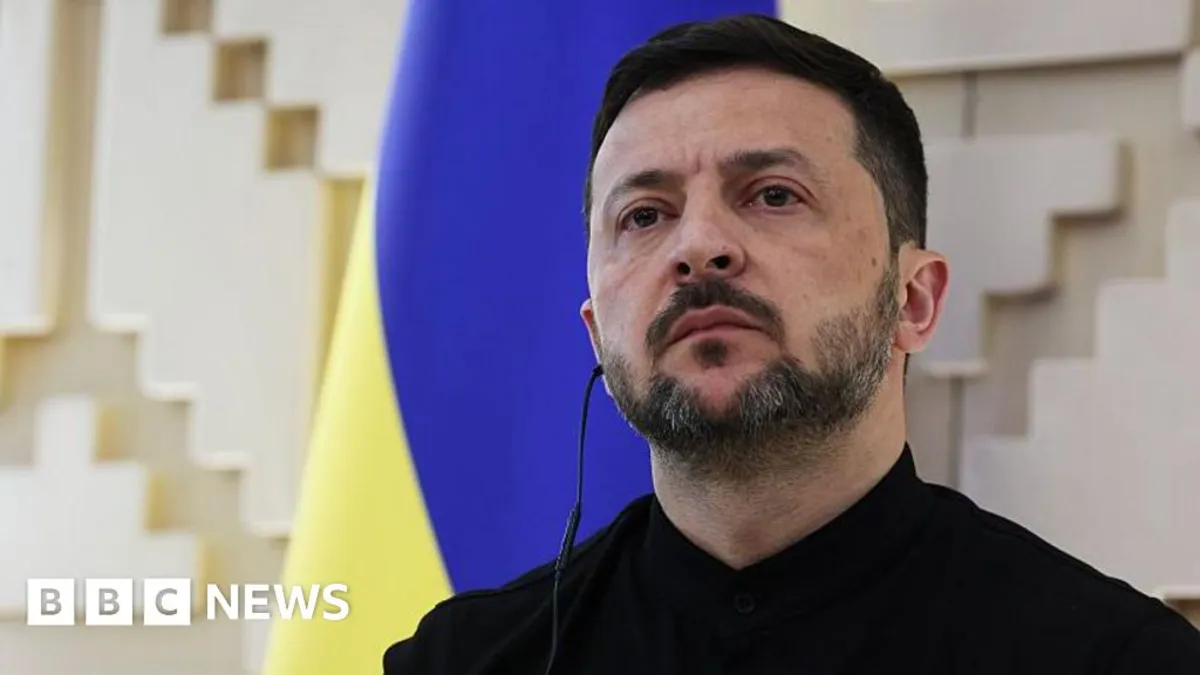
In a significant development, Ukrainian President Volodymyr Zelensky has expressed cautious optimism regarding the latest peace talks held in Geneva with US officials. While he acknowledged the progress made during these discussions, he emphasized that the core issue remains Russian President Vladimir Putin's insistence on the legal recognition of territories occupied by Russia in eastern Ukraine. This demand continues to pose a major obstacle in the path towards achieving a sustainable peace agreement.
On Sunday, key officials from the US and Ukraine convened in Switzerland to explore pathways to end the ongoing war with Russia. Reports from both sides indicate a willingness to continue dialogue, although specific details on reconciling the stark differences between Moscow and Kyiv—particularly concerning territorial integrity and security guarantees for Ukraine—remain elusive.
It is anticipated that President Zelensky will soon meet with US President Donald Trump to address the more contentious issues surrounding the peace talks. However, no definitive timeline for this meeting has been established. The question of territorial integrity is proving to be a critical point of contention, as Zelensky has consistently stated that rewarding Russia with land seized through aggression would set a dangerous precedent for international relations.
Following the conclusion of the Geneva talks, President Trump hinted at potential positive developments on social media, albeit with a cautionary note: "Don't believe it until you see it." Notably, Russian representatives did not participate in the discussions, and the Kremlin has stated that it was not informed of the outcomes from the meeting. Kremlin spokesperson Dmitri Peskov acknowledged that changes had been made to the initial peace proposal that had been presented to Ukraine, which had originally received Putin's endorsement.
The peace proposal, a 28-point document drafted by US and Russian officials, includes elements that appear to favor longstanding Russian demands, causing unease in Kyiv and among its European allies. Trump's comments suggesting that Ukraine must accept the deal by a certain deadline to avoid cuts in US support have heightened urgency in diplomatic efforts across Europe.
While US Secretary of State Marco Rubio remarked that "a tremendous amount of progress" had been achieved, some European leaders are adopting a more cautious stance. Polish Prime Minister Donald Tusk expressed uncertainty regarding the prospects for peace, while German Chancellor Friedrich Merz highlighted that the discussions would likely be a lengthy process without immediate breakthroughs expected.
In the wake of the US peace plan's presentation, European leaders found themselves scrambling for inclusion in the negotiations. A counter-proposal reportedly drafted by Britain, France, and Germany explicitly rejected any recognition of Russian-held territories, proposed an increase in Ukraine's military capacity, and left the possibility of Ukraine joining NATO on the table. Rubio, however, stated he was unaware of this counter-proposal, while Kremlin foreign policy aide Yuri Ushakov dismissed it as "completely unconstructive."
Since Russia's full-scale invasion of Ukraine in 2022, Moscow has consistently demanded a complete withdrawal of Ukrainian forces from the eastern Donbas region. However, Kyiv and its European allies remain wary of any settlement that compromises the principles of territorial integrity and sovereignty. Zelensky has reiterated that conceding the Donbas would expose Ukraine to further Russian aggression.
Another significant demand from Russia is a commitment from Ukraine never to join NATO. However, Kyiv views NATO membership as essential for its defense against future threats, a stance that is also enshrined in the Ukrainian constitution. Despite the flurry of diplomatic activity last week, the next steps in the peace process remain uncertain.
The expectation is that Zelensky will soon engage directly with Trump, after which a revised peace plan may be presented to Moscow. Currently, there are no scheduled meetings between Russian and US negotiators this week, according to Kremlin officials. British Prime Minister Sir Keir Starmer has emphasized that there is still a considerable amount of work to be done to achieve a just and lasting peace in Ukraine, with a virtual meeting of the coalition of willing nations planned for Tuesday to discuss ongoing developments.